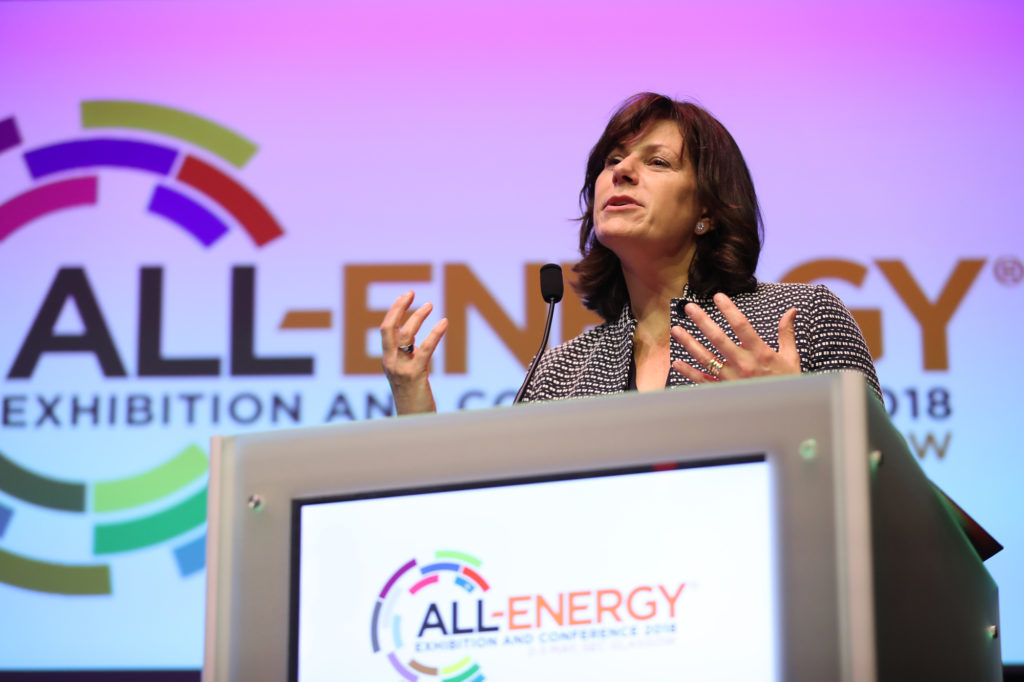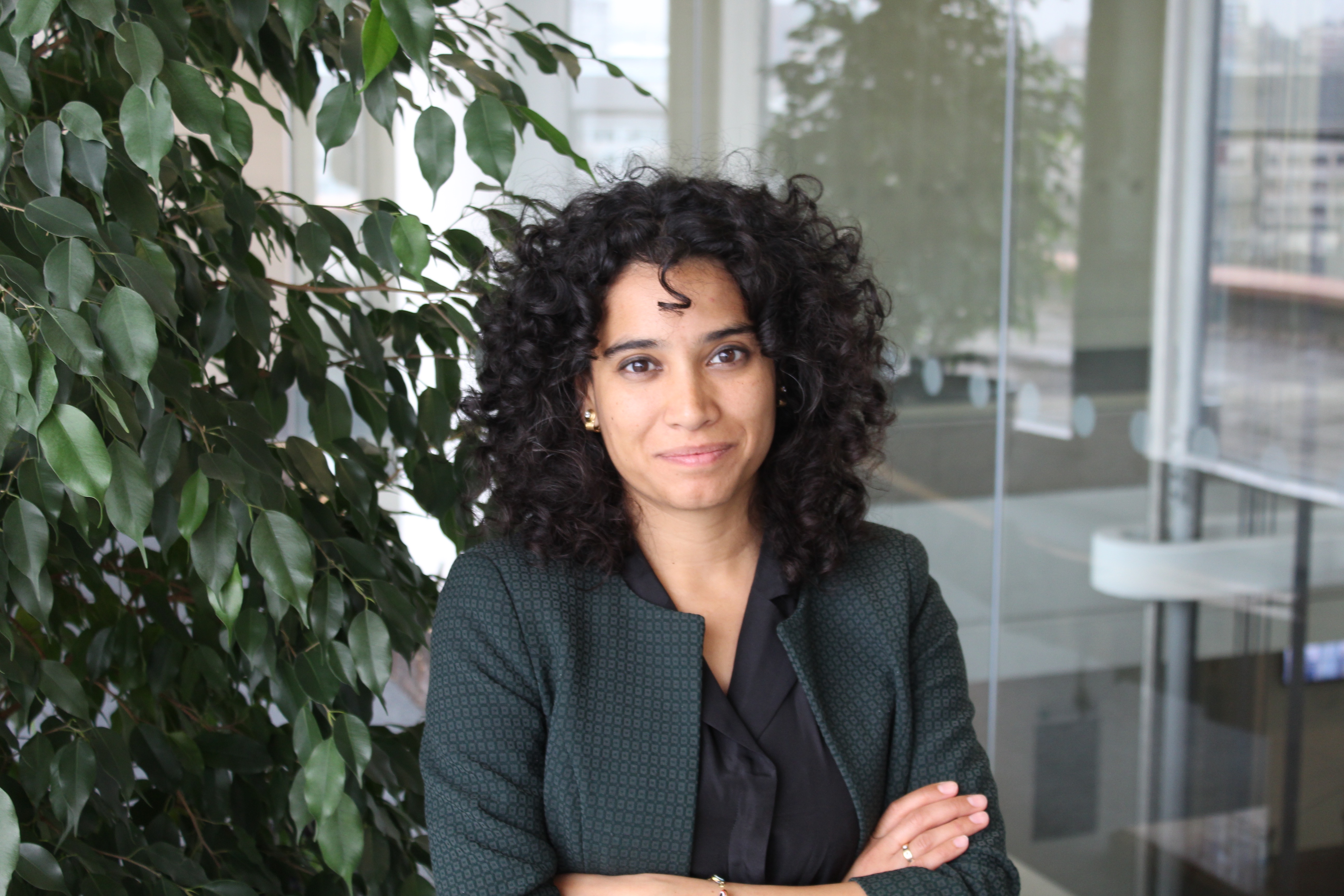
Female leaders share their advice for considering a career in sustainable finance
The UK Government’s Clean Growth Grand Challenge aims to support UK industry towards a global shift to cleaner economic growth.
The relationships between, and the direct effects of, our lifestyle habits and consuming choices is under greater scrutiny as we transition to a more sustainable economy, and as a result we are making more ethical and sustainable choices.
Consumers are increasingly drawn to businesses that demonstrate environmental and social responsibility and this green trend is also being reflected in their investment decisions.
We’ve long championed diversity and celebrating women in leadership positions, that’s why we’re shining a spotlight on four of the industry’s fiercely talented female leaders to show that you can be ethically and socially conscious while earning an attractive salary. Through their industry experience and leadership platforms they continue to articulate powerful messages on how to make it as a woman in sustainable finance in 2019.
Read on to learn how they got started, their thoughts on the industry and their advice for other women considering a career in sustainable finance. It’s invaluable advice from women who’ve achieved great success in an industry where just 35% of the workforce are in female leadership roles, according to Acre, social responsibility recruitment specialist.
A responsible investment analyst starts at around £30,000. According to the Acre 2018 Sustainability Salary Survey salaries can rise to six figures for those overseeing a responsible investment team.
Energy and Clean Growth Minister Claire Perry said: “Celebrating trailblazing women is one of the best parts of my job. I want other women to follow their lead and embrace the opportunities presented by clean growth, like those in the sustainable finance sector.”
Case Study One
 Anjuli Pandit, UK Head of Corporate Sustainability / Primary Sustainability Manager at BNP Paribas
Anjuli Pandit, UK Head of Corporate Sustainability / Primary Sustainability Manager at BNP Paribas
Qualification: BS in Education from University of Miami and MA in International Public Management with an Energy policy focus from Sciences Po, Paris
What exactly do you do?
I act as a bridge between investors who are looking to integrate sustainability into their portfolios and issuers who need to raise capital to achieve their sustainability goals. By studying investor needs in detail, I hope to bring to issuers opportunities on how to increase their access to capital by demonstrating ESG performance along with financial performance.
What made you go/get into the field you are in?
In 2006 I was invited to a training by Al Gore on how to give the Inconvenient Truth Presentation on his behalf. Since then I have been hooked on climate action. 10 years ago I probably wouldn’t have ever considered that I had a skillset which could be interesting to the financial services. Today, there are many people like me joining other banks or asset managers to look into ESG factors which could lead to long term returns. By marrying my knowledge on sustainability with my colleagues extensive expertise in delivering financing and investment products, we are able to push this pioneering new field – Sustainable Finance.
What do you find exciting about it, what do you get out of it, why do you enjoy it?
The incredible satisfaction that every single day you are working towards solving the climate crisis, human rights issues, gender equality- all the United Nations Sustainable Development Goals really! We all know it is going to take an immense amount of capital to change our business models and systems towards inclusive, environmentally conscious practices. My job is do everything I can to get clients access to that capital or the opportunity to invest in that future we all aspire towards. Because we have to demonstrate the impact this capital is creating, we talk about carbon emission reductions, hospital beds, employment opportunities, women on boards. It is very concrete and rewarding to know that I have some role to play in making these sustainability goals a reality.
Why might you encourage others into it/consider it as a career or a career in the ‘green economy’?
Money makes the world go round. And in order to keep the world turning, we need to solve these problems. I would encourage someone who is considering finance to enter into this field because I think it is the future of finance and the best bet for their career growth. However, if someone is not ready to enter the finance industry, I would recommend they follow their passion and bring “green” to it. If you want to be an events manager – do it, in fact, be the best events manager you can be! By making all your events carbon neutral and setting a precedent for the events industry on eco-conscious event planning.
What are some of the really interesting things you’ve worked on and how do they ‘fit’ with clean growth?
Last year I attended a workshop with a group of portfolio managers and investment officers on how we should view companies performance through the lens of the United Nations Sustainable Development Goals. It was fascinating because it was calling on us to challenge how we evaluate companies, and question which business models we really want to invest in. Many of the firms there were mainstream investors, making this conversation very impactful. We also created a carbon management strategy for our offices across the UK, setting reduction targets based one energy efficiency and purchasing renewable energy. Currently I have started working on how to market and develop “transition bonds.” This means companies who may not necessarily be ready to completely invest in green infrastructure, however they require funds to get themselves closer to being able to do so. When we look at the energy transition, we have to be very conscious that it is a transition. We want to support as many organisations as possible who are truly committed to this transition to find ways to disengage from traditional technologies at a pace which is fair to their business and also to the communities who they serve. The energy transition is so much more than just renewable energy, and being able to focus on areas like energy efficiency, smart grids, storage, distribution, etc, allows us to ensure that we are attacking all the infrastructure shifts that will be required to drastically change the way we power our planet.
What would you say is the biggest/greatest satisfaction you get from your career?
My career has been very fluid, and I was able to work in private, public and not for profit sectors around the world. I have worked in villages in Africa and India marketing solar lighting for rural communities when I headed Communications at Greenlight Planet. I have presented on climate change to politicians, school children, business leaders, and in local community centres across the world through Al Gore’s Climate Reality charity. I have researched climate policies at the International Energy Agency in Paris and listened to concerned citizens talk about bat diseases in the Midwest when I worked at the Obama Administration in Washington DC. I have advocated to global policy makers to mandate reporting on climate change when I was part of team which developed IT software to track and measure carbon emissions for Tata Consultancy Services. The subject is vast and pervasive, and therefore, so can your career be should you make it your focus.
Why you think what you do is important in relation to clean growth/the green economy?
Why wait until tomorrow what you could start solving today? I am too impatient not to be a problem solver. That’s how I approach my professional goals, my relationships, and my personal commitment to climate change and gender equality. To any woman considering a career in sustainable finance, I would say: we need you!”
Why is IWD important and what does it mean to you?
I am so excited to be a 33 year old working woman in 2019. I would have been a miracle only decades ago, but thanks to my mothers generation, I am the norm today. They fought to get us integrated into the workplace, but we should not make the mistake of being thankful that we are here. It is our right to be here. My generation now has the responsibility to improve that workplace so that it is conducive to working women’s needs. I feel the weight of this responsibility the way one probably feels the weight of a newborn in your arms. With a lot of pride to have been given a purpose to nurture something and make it grow. We see the changes already as men and women demand work life balance to bring flexibility to breastfeeding employees, and bold women stand up for equal pay. I have become a vocal advocate for how to create safe places for women to work free of fear of sexual harassment and discrimination. We have a long ways to go, but I am encouraged by the fact that the tide seems to have turned against misogyny at the workplace as more people are bringing fairness and inclusivity to business cultures than ever before.
Recommended for you
